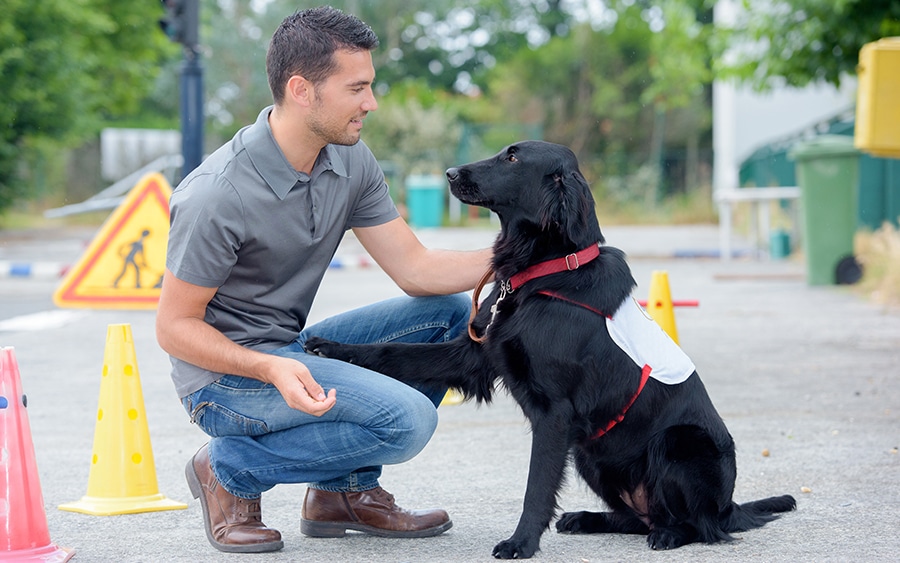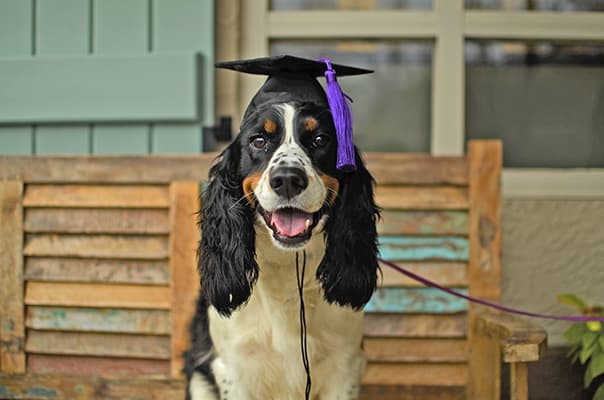Discover Top Tips for Dog Training Charlotte NC That Actually Job
Discover Top Tips for Dog Training Charlotte NC That Actually Job
Blog Article
Unlock Your Pet dog's Prospective: Proven Canine Training Strategies for Success
Effective pet dog training is a nuanced procedure that hinges on understanding canine habits and using scientifically backed methods. By including positive reinforcement, developing clear commands, and focusing on socialization, canine proprietors can grow an effective relationship with their animals.
Understanding Dog Behavior
Comprehending pet actions is important for efficient training and promoting a favorable partnership in between dogs and their owners. An extensive grasp of canine body language, articulations, and social communications is critical for identifying their needs and emotions. Canines communicate mainly with non-verbal hints; as an example, a wagging tail may suggest enjoyment, while pinned ears can indicate worry or submission.
Moreover, environmental elements play a considerable duty fit a canine's habits. Modifications in regular, brand-new environments, or the presence of unfamiliar individuals can result in anxiety or anxiousness in pets. Recognizing these triggers enables owners to reduce negative responses and create ideal training approaches.
Ultimately, a deep understanding of canine habits lays the foundation for successful training methods, improving both behavior and the overall bond in between the pet and its proprietor. dog training charlotte. This knowledge is indispensable for fostering a well-adjusted, happy canine buddy
Positive Support Strategies
Reliable training depends heavily on positive support strategies, which have been revealed to generate significant lead to forming desired behaviors in pets. This technique includes rewarding a pet for displaying particular behaviors, therefore boosting the possibility that these actions will be duplicated. Rewards can take numerous types, including deals with, praise, playthings, or playtime, relying on what motivates the private canine.

It is crucial to slowly terminate benefits as the dog discovers the actions, transitioning to periodic support. This technique keeps the behavior with time while stopping dependency on continuous incentives. By focusing on favorable support, trainers can grow a relying on connection with their pets, promoting a participating and healthy training environment that improves total obedience and performance.
Establishing Constant Commands
A basic aspect of successful canine training is the facility of regular commands. Uniformity in commands is essential for efficient interaction in between the trainer and the canine. When commands are uniform, canines discover to connect details words with wanted behaviors, which accelerates the training process and boosts understanding.
To develop regular commands, it is essential that all member of the family use the exact same terminology and motions. If one individual makes use of "rest" while an additional says "rest down," it can produce confusion for the canine. Select clear, distinct words for commands and guarantee everyone involved in the dog's training abides by these selections.
Strengthen commands with frequent technique, making sure that the canine obtains adequate opportunities to react correctly. When a pet effectively adheres to a command, instant positive reinforcement should comply with.
Lastly, be individual. Establishing regular commands takes some time and effort. With devotion and clarity, you will certainly assist your pet develop a solid understanding of assumptions, eventually bring about a well-behaved friend.
Socialization and Direct Exposure
Socializing a pet dog is vital for cultivating a well-adjusted and positive friend. This process includes revealing your dog to a variety of atmospheres, individuals, and other animals to establish their social abilities and flexibility. Early socializing, ideally between the ages of three find out here to fourteen weeks, is vital, as it prepares for a canine's future habits.
Throughout socializing, aim to offer positive experiences in different settings, such as parks, hectic roads, and homes with various other pet dogs. Present your pet to various stimuli, including sounds, sights, and smells, ensuring that each encounter is gratifying. This exposure helps reduce worry and stress and anxiety, leading the way for a much more durable canine.
Involving in controlled team play sessions with other pets can likewise enhance social abilities, instructing your pet ideal communications and boundaries. Focusing on socialization will significantly add to your dog's total happiness and actions throughout their life.
Conquering Common Educating Obstacles

An additional frequent problem is distraction. Pet dogs might struggle to concentrate in active or unfamiliar settings. Slowly desensitize your pet dog to distractions by starting training in a peaceful setting and slowly introducing even more stimulations as they come to be skilled (dog training charlotte). Positive reinforcement methods, see this here such as deals with and appreciation, can keep inspiration and focus.
Additionally, behavioral issues like jumping or excessive barking can become frustrating. Address these by teaching alternative behaviors, such as resting steadly when welcoming visitors. Uniformity and persistence are important; strengthen preferred behaviors consistently and avoid abuse, which can bring about complication.
Finally, recognize that each dog is unique, and training timelines might vary. Tailor your approach to your pet's specific requirements, and seek professional advice if needed. With determination and the right strategies, getting over these difficulties can result in a trained, delighted canine buddy.
Conclusion
In verdict, unlocking a dog's possible requires an extensive strategy that integrates an understanding of canine behavior, the application of favorable reinforcement methods, and the establishment of constant commands. Early socialization and direct exposure to varied atmospheres further improve a dog's versatility and confidence. By attending to common training difficulties with customized techniques and perseverance, a harmonious and participating connection between canine and trainer can be cultivated, ultimately resulting in a mannerly companion qualified of prospering in various situations.
Reliable pet dog training is a nuanced procedure that hinges on comprehending canine actions and employing clinically backed approaches.Understanding canine habits is essential for efficient training and promoting a favorable partnership between canines and their owners.Efficient training counts greatly on favorable reinforcement techniques, which have been shown to produce considerable outcomes in forming wanted actions in pets. When commands are consistent, dogs learn to associate particular words with desired habits, which speeds up the training process and improves understanding.
In final thought, unlocking a canine's prospective requires a thorough approach that includes an understanding of canine actions, the application of favorable support methods, and the establishment of constant commands.
Report this page